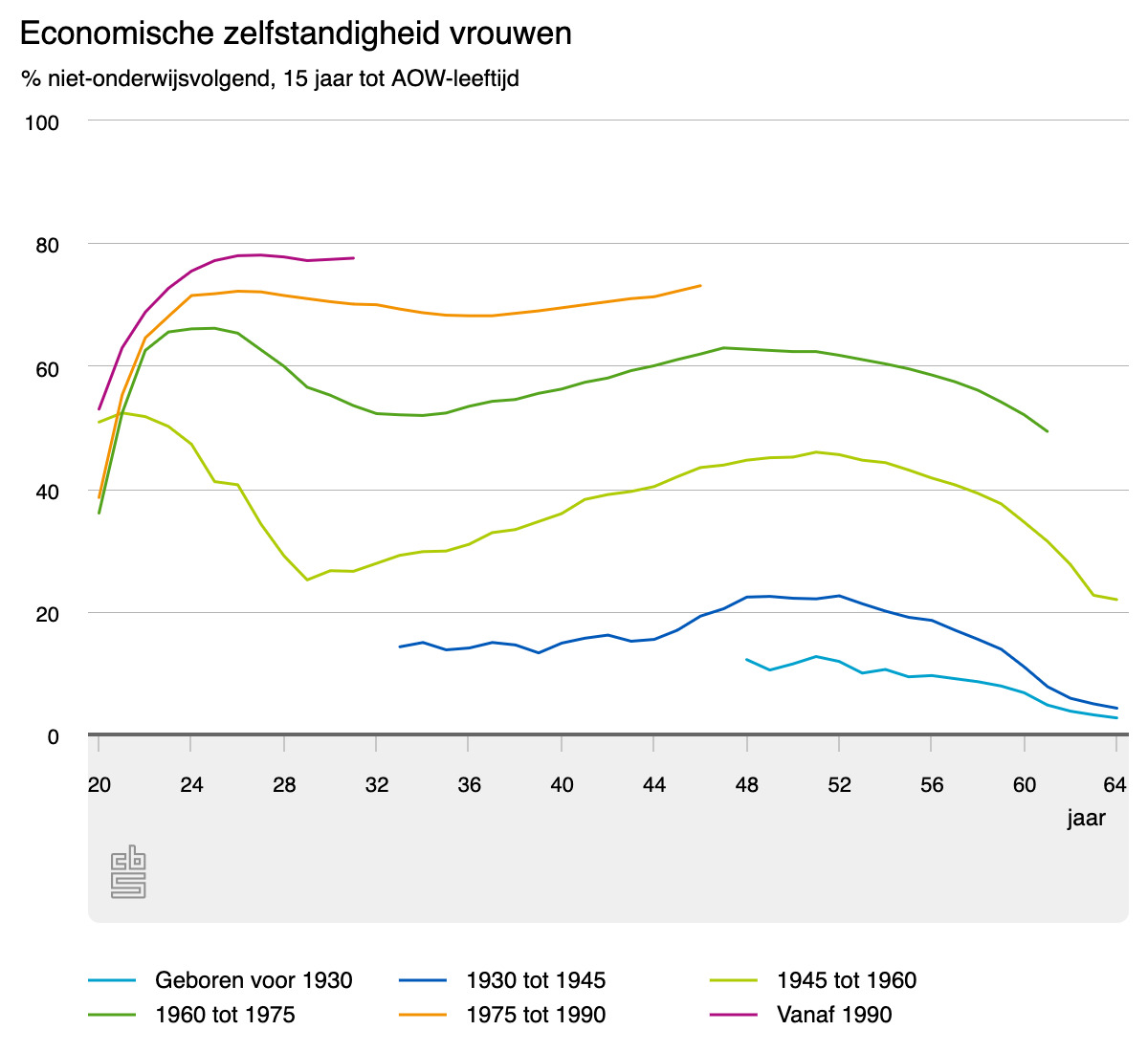Seven in 10 Dutch women are now financially independent

Some 70% of women in the Netherlands are now able to support themselves financially, compared with just 20% when the survey was first carried out in 1977, according to new research by national statistics agency CBS.
By contrast, there has been little change among men, with 80% both then and now being financially independent. The CBS defines financial independence as earning at least the level of welfare benefits.
Dutch women were relatively late to enter the labour market. Up to 1958, for example, women who worked for the government were sacked if they got married. In the 1980s, 90s and 00s there was still a dip in women’s economic independence around the age of 25 but this has now largely disappeared, the CBS said.
The current generation of young women are more likely to continue working and to work longer hours than their mothers and grandmothers, the CBS said.
Nevertheless, part-time jobs are popular, with 70% of women working fewer than 35 hours a week, even if they don’t have children. The Netherlands has the highest percentage of part-time workers in Europe, with women working an average of 29 hours a week, 10 hours fewer than men.
Women are also likely to earn less than men, a gap that widens the higher they progress up a career path. Research published last year showed the average man in the Netherlands now earns 7.4% more than the average woman, but two years ago the difference was just 5%.
Thank you for donating to DutchNews.nl.
We could not provide the Dutch News service, and keep it free of charge, without the generous support of our readers. Your donations allow us to report on issues you tell us matter, and provide you with a summary of the most important Dutch news each day.
Make a donation